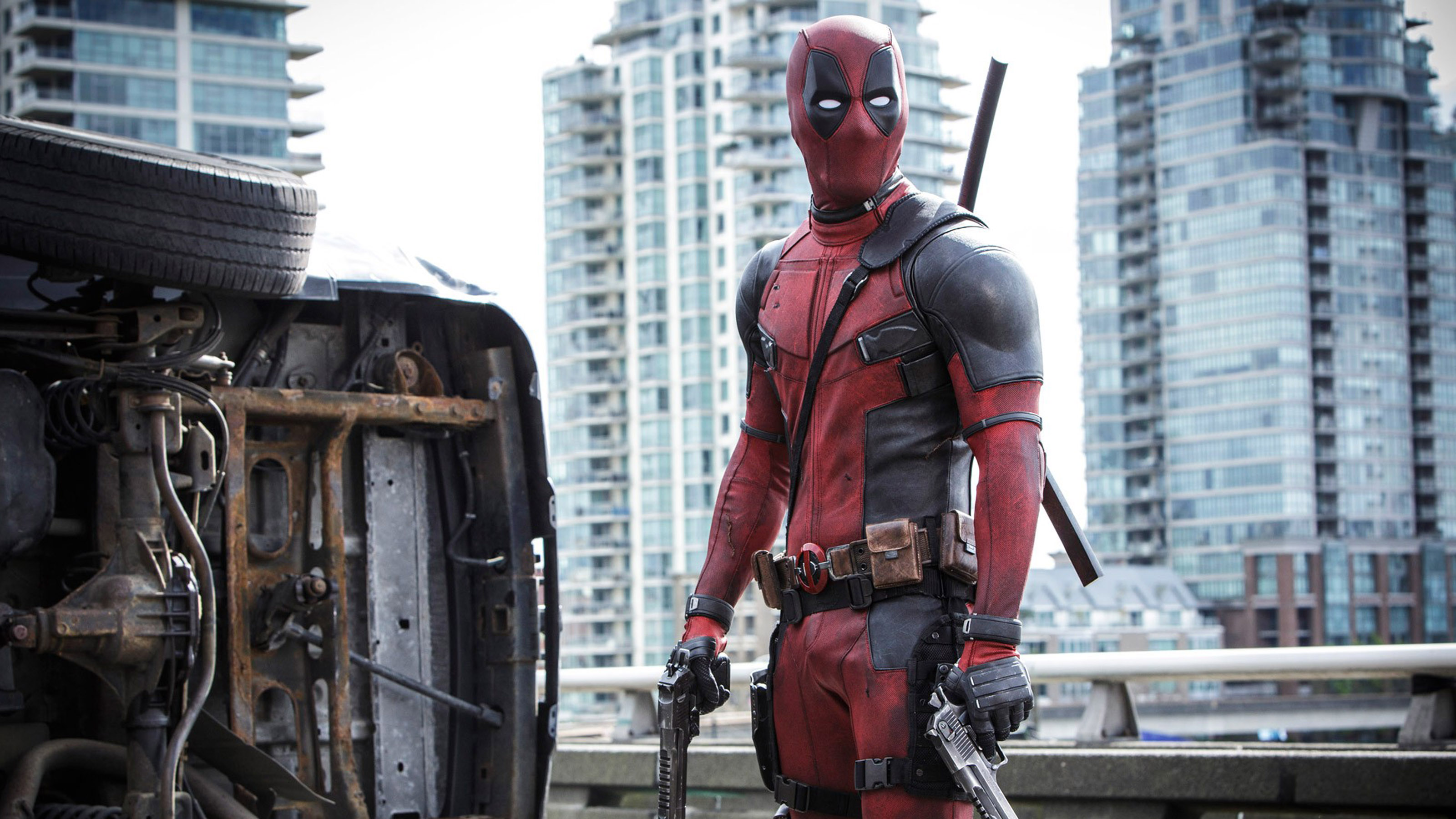With his penis-joke-heavy sense of humor, motor mouth, and penchant for ultraviolence, Deadpool (Ryan Reynolds) is a decidedly ’90s character—there’s not really any getting around that. I mean, the dude was created by Rob Liefeld for crying out loud! Nicknamed by comic fans “the merc with a mouth,” Deadpool is Wade Wilson, a mercenary who gains superpowers when he is diagnosed with terminal cancer and undergoes a series of shady experiments that do, in fact, cure his cancer but also horribly disfigure him and turn him into a mutant—but a really irreverent mutant who never shuts up, has a nine-year-old’s sense of humor, loves to break the fourth wall, and is like, so meta.
If you’re thinking, “That sounds like the most obnoxious character on the planet,” you wouldn’t be wrong. But first-time feature director Tim Miller grounds him firmly in 2016. Deadpool is a fish out of water in today’s politically correct world, one where casual sexism, racism, and homophobia are frowned upon in a way they just weren’t when the character was created. Though all of his jokes are immature, a fair amount fall flat, and more than a few are downright offensive, the character exists in a world where most people are as annoyed with him as we are. Thus, Miller solves a seemingly impossible problem: water down the character and risk alienating the fans, or leave him as-is and alienate everyone else. Miller plays both sides by giving the film a moral compass so that Deadpool himself doesn’t need one—he is, after all, an anti-hero.
Miller skillfully navigates most of the film in this way. True to form, Wade treats his love interest Vanessa (Morena Baccarin) as if she has no autonomy—the plot hinges on his assumption that she’s shallow—but the film actually gives her a great deal. The fact that she works in a strip club is portrayed not as peril from which Wade must rescue her but as a valid career choice that suits her personality. Even when things go south, as they are wont to do for the love interest in a superhero movie, Vanessa is presented as a real woman with real thoughts and emotions and the ability to make decisions, an archetype conspicuously absent from the big-budget films of the ’90s.
Miller plays both sides by giving the film a moral compass so that Deadpool himself doesn’t need one—he is, after all, an anti-hero.
When Deadpool, known for his cartoonish violence, kills a man in a relatively mild way, Colossus (Stefan Kapicic) vomits. When a cabbie decides to take revenge on his romantic rival at Deadpool’s encouragement, Colossus and Negasonic Teenage Warhead (Brianna Hildebrand) are shocked and appalled. Minutes later it becomes pretty clear that the cabbie is going to get arrested—an outcome true to a world with consequences, even if Deadpool believes himself impervious to them.
Most of us can relate to this hubris, because it was our own. If you’re between the ages of twenty-five and sixty, chances are you were raised in a world without consequences, one in which the housing bubble had not yet burst, the Twin Towers were still standing, and racism had been triumphantly, if prematurely, declared dead. By allowing Deadpool the character to remain a relic of his time but placing him in a modern context, Deadpool the movie forces society to face its missteps and exposes our past embarrassments when it could have easily reveled in them. FL







